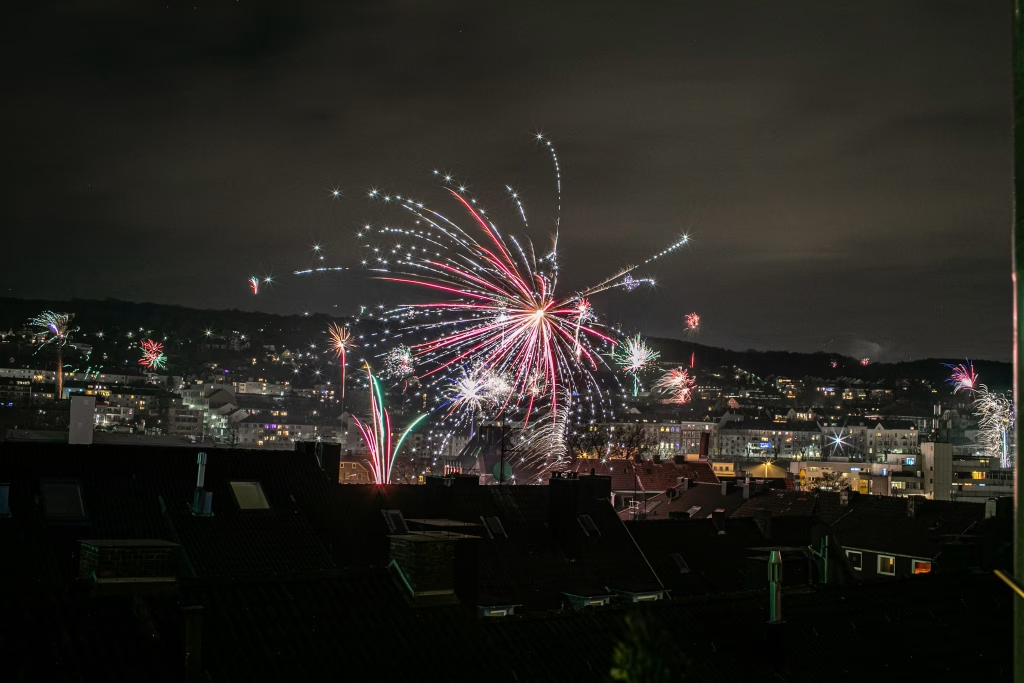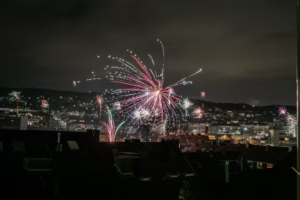The Fireworks Debate in Germany: A Call for Change After New Year’s Violence
The arrival of the New Year is traditionally marked with vibrant fireworks displays worldwide. However, in Germany, the celebration took a dark turn this year, reigniting debates about the private use of powerful pyrotechnics. Violent clashes involving revelers and police in Berlin and other cities have led to a national conversation about stricter regulations or an outright ban on fireworks.
The Incident
This year’s New Year celebrations were marred by a series of violent incidents. In Berlin, emergency responders and police were reportedly attacked with fireworks and other improvised weapons. Similar incidents were recorded in other cities, resulting in injuries, property damage, and widespread public outrage.
The clashes highlighted the dangerous misuse of fireworks and the strain it places on emergency services during peak holiday times.
Current Regulations on Fireworks in Germany
Germany allows the private use of certain types of fireworks during the New Year’s period. While the sale of fireworks is restricted to the final days of the year, individuals are permitted to set them off on New Year’s Eve and New Year’s Day.
However, powerful pyrotechnics are still accessible, and enforcement of existing regulations remains a challenge.
Arguments for a Ban
- Public Safety:
The misuse of fireworks has led to numerous injuries and damage to public and private property. Critics argue that banning private use would reduce these risks significantly. - Environmental Concerns:
Fireworks contribute to air and noise pollution, with particulate levels soaring during New Year celebrations. A ban would support Germany’s environmental commitments. - Strain on Emergency Services:
Fireworks-related incidents occupy police, firefighters, and medical personnel, diverting them from other critical emergencies.
Arguments Against a Ban
- Cultural Tradition:
Fireworks are deeply ingrained in New Year’s celebrations, symbolizing joy and festivity. Critics of a ban argue that such regulations would strip the event of its cultural significance. - Economic Impact:
The fireworks industry generates significant revenue, and a ban could negatively impact small businesses and vendors. - Enforcement Challenges:
Implementing and policing a nationwide ban could prove difficult, particularly in urban areas.
Possible Alternatives
To address the growing concerns while maintaining the celebratory spirit of New Year’s, several alternatives have been proposed:
- Designated Fireworks Zones: Authorities could establish safe, controlled areas for fireworks use.
- Increased Public Fireworks Displays: Municipalities could invest in larger, professionally managed displays to reduce private usage.
- Stricter Licensing: Introducing permits for fireworks could limit access to responsible users.
The recent violence has pushed this debate into the political spotlight, with several lawmakers and public figures calling for immediate action. Local councils and federal authorities are expected to review existing policies in the coming months.
Germany stands at a crossroads: balancing public safety, cultural traditions, and environmental concerns will be key to shaping future regulations.
The New Year’s violence has served as a stark reminder of the risks associated with private fireworks use. Whether Germany opts for stricter controls, a partial ban, or alternative solutions, one thing is clear: the current system needs reform to ensure safety and preserve the spirit of celebration.








